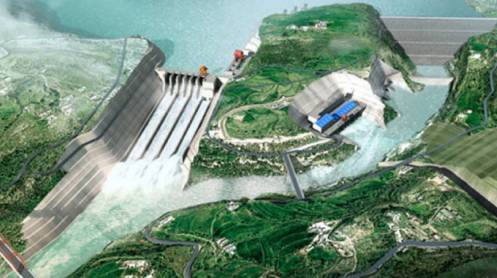ISLAMABAD: China’s state-owned insurance company, Sinosure, has shown a willingness to implement two major hydropower projects in Pakistan—the 700-MW Azad Pattan Hydropower Project and the 1124-MW Kohala Hydropower Project—following guidance from Beijing, well-informed sources told Business Recorder.
Successive Pakistani governments have struggled to commence these vital hydropower projects due to Sinosure’s reluctance, primarily driven by payment issues with existing companies and the substantial circular debt, which currently hovers around Rs 2.6 trillion.
Minister for Planning, Development, and Special Initiatives recently raised concerns about the delay in these projects during meetings with Chinese company executives before an official visit to China. Encouragingly, he received a positive response from Chinese leadership.
Pakistan’s Embassy followed up on these discussions, facilitating consultations between Counsellor Haseeb Gohar and Sinosure’s Guo Shuang. The key outcomes from these meetings include:
Government Directive: Sinosure has received mandatory guidance from the Chinese government to proceed with the Azad Pattan and Kohala hydropower projects.
Submission of Letters of Intent (LoI): Pakistan must urge Chinese investors to submit new LoIs for these projects. The LoI for Azad Pattan submitted by China Gezhouba Group Company (CGGC) in April 2023 has expired and needs renewal.
Application for Kohala HPP: No application or LoI has been received for the Kohala HPP. China Three Gorges (CTG) or another investor needs to submit this documentation.
Economic Feasibility Report: Chinese investors must resubmit an economic feasibility report, incorporating arrears, which will be an independent component in Sinosure’s evaluation process.
In March 2024, the Private Power and Infrastructure Board (PPIB) gave M/s Azad Pattan Power (Pvt) Ltd (APPL) one month to commence work on the 700.7-MW Azad Pattan project, including securing approvals from Sinosure. Failure to comply may compel PPIB to explore alternative options.
The PPIB has emphasized the importance of commencing development activities to maintain balance in power generation planning. Alternatively, if Sinosure clearance is delayed, the project may be excluded from the Indicative Generation Capacity Expansion Plan (IGCEP) to make room for other pipeline hydropower projects. Once clearance is obtained, the project can be re-included as per new timelines.
APPL representatives have indicated improving confidence from the Chinese side, with CGGC headquarters making efforts to obtain LoI from Sinosure. They have requested PPIB’s continued support to resolve the Sinosure clearance issue promptly.
Last October, the Ministry of Planning, Development, and Special Initiatives had expressed doubts about achieving financial closure for the Azad Pattan and Kohala hydropower projects. However, ongoing efforts by Chinese companies and the Government of Pakistan have finally convinced Sinosure to insure both projects, paving the way for their implementation.
Story by Mushtaq Ghumman







